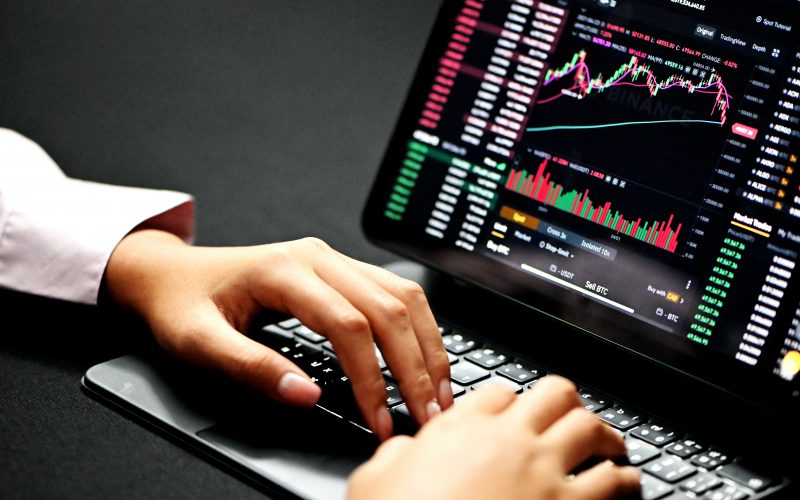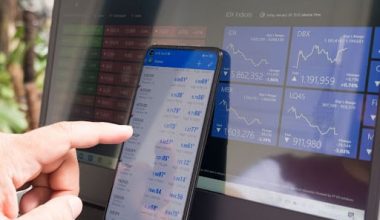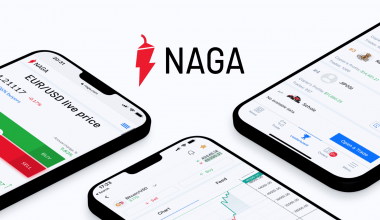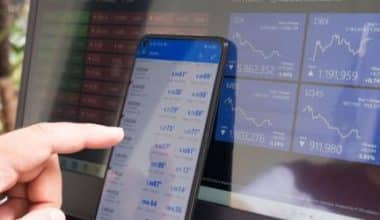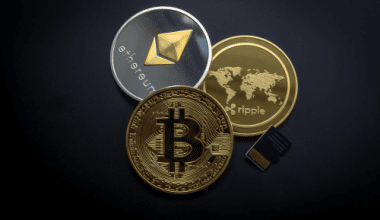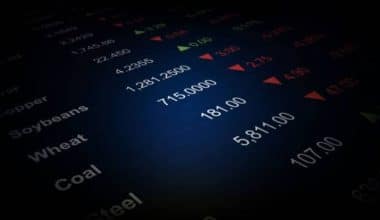Forex trading is a process of buying and selling currencies with the goal of making a profit. It can be lucrative, but it’s also complex and risky. In order to be successful in forex trading, you need to understand the basics of how the market works and have a grasp on how to formulate your best strategy.
There are no fixed rules for trading currencies, but there is some foundation that must be established by a trader to be successful in this market:
The Basic Foundation
#1. Set Your Goals
In order to make a good forecast, it’s necessary to set targets for your currency pair; this will help you identify important price levels and understand when the price is likely to move in the desired direction.
#2. Get The Right Tools
A good trader is every bit as good as his tools (analysis). As with any other profession, trading has its own specialties; some traders prefer technical analysis, while others opt for fundamental analysis. The most important thing is to find the right tool/analysis and use it properly. One of the best examples of this will be by using a Virtual Private Server. VPS is a tool that can help you to have an uninterrupted trading session by hosting your trading platform on a remote server. For more details, you can check VPS Forex. This is important because if your computer crashes or loses internet connection, your trade will not be affected. Additionally, a VPS can help you to speed up your trading process by allowing you to access your trading platform from anywhere in the world.
#3. Have A Strategy
Use the “trade like a millionaire” strategy (TLAM). This simple technique can be applied not only on currency markets but also on stock or commodity markets. The “Trade like a millionaire” strategy is designed to preserve accumulated profits and cut losses (at the same time). The basic idea behind this technique is to use only 1% of your equity per trade. This means that if you have $ 10000, you can invest up to $ 100 on one single trade. If the price goes in your favor, you can either close the deal and get a 100% profit or you can use an “alternative order” (stop order, trailing stop, take-profit) to move your position into profit.
#4. Set Enough Time Aside For Trading
Currency markets are volatile, so it’s necessary to have plenty of time available in order to identify major price movements and take part in them. If you trade currencies, you should try to do it at the same time each day: this will help you determine patterns that can be used to forecast future price movements.
Currency trading can be beneficial but it requires a great deal of practice in order to achieve success. There are many professional currency traders who work with brokers or invest large sums of money on forex forums. However, most people just want to try their hand at trading and see how it goes.
Learning how the forex market works will help you understand how to set your goals and plan yourself. Let’s take a look at some of the basics of forex so you can get started.
Basics Of Forex
#1. Currency Pairs—The Building Blocks Of Forex Trading
Every trade on the forex market is related to a currency pair that consists of one major currency and another, counterbalancing currency. The first one is called the base currency, the second is the quote currency. For example, EUR/USD consists of euro and US dollar; GBP/JPY—of the British pound and Japanese yen.
The most popular currency pairs are majors (EUR/USD, GBP/USD…) along with crosses (EUR/GBP, USD/CHF…). When trading these currencies you should always take into account their moves and ever-changing quotes; for example, if you’re trading GBP/USD it’s important to know that GBP is growing against USD.
#2. Forex Trade: The Mechanics
When trading currencies on the forex market, a lot depends on how currency pairs are quoted. The moment you buy or sell a currency you get the base price of the pair. For example, if you’re trading GBP/USD and buy a pound for $1, this means that one British pound costs 1.70 US dollars.
When selling a currency it’s necessary to use the quote currency in order to calculate profit or loss. For instance, if you sell the same GBP/USD pair, you’ll get 1.70 US dollars for one British pound and gain 0.30 (1.70-1.40) dollars for one sold unit of GBP/USD after selling it; this is 30 pence if we’re talking about GBP/GBP quotes.
Of course, this is a very simplified example. In reality, trading is more complicated and instead of looking at transactions in the terms of “selling” or “buying” currencies you should consider them as going long (when going for a deal) and going short (when closing a deal).
Almost all currency pairs can be traded both ways, but there are also some pairs that can only be traded in one direction. For example, USD/CHF is a pair that can only go long (trading USD against CHF), because it’s not possible to sell Swiss francs for dollars.
#3. Key Numbers
Every forex trader should know the key values of their market. Here are a few of the most important:
- – High and low prices. This information can be easily found on any financial portal or website that provides forex news. There’s no point in trying to forecast anything if you don’t know where the price is heading for. In order to make a good forecast, it’s necessary to compare current numbers with historical highs and lows.
- – Pivot points (P). This is a level of support/resistance that, in the past, has marked the beginning or end of a significant price movement. You can find more information about pivot points and how to use them on forex forums and analysis websites.
- – Fibonacci retracement. This is a very popular indicator that helps to identify areas of support and resistance, as well as trend reversals. You can find more information about Fibonacci retracement in forex forums and analysis websites.
- – Bollinger Bands (BB). This tool shows you not only where the price will go, but also its volatility: wide bands indicate high volatility, and narrow bands—low volatility. You can find more information about Bollinger Bands on forex forums and analysis websites.
- – Moving averages (MA). This is another very popular indicator that shows the average price of a currency pair over a certain period. It’s used to identify changes in the momentum of the price movement. You can find more information about moving averages on forex forums and analysis websites.
- – Relative strength index (RSI). This is a momentum indicator that shows the general price movement by comparing the average price with traders’ open positions. There are several types of RSI, all based on different nomenclature so you should familiarize yourself with the one you’re going to use if you want to understand it well. You can find more information about RSI on forex forums and analysis websites.
Read Also: WHAT IS A BROKER DEALER? Salary & How They Work
How Do I Begin Forex Trading Forex?
Learning about the terms and workings of the forex market is the first step in trading. The next step is to create a trading plan depending on your resources and risk tolerance. The last step is to open a brokerage account. Opening and funding a forex account online today makes it simpler than ever to start trading currencies.
Why Do People Trade Currencues?
Forex is mostly used by businesses and dealers for speculating and hedging purposes. While the latter is used to fix prices for production and sales in foreign markets, the former is utilized by traders to profit from changes in currency prices.
What Ways Can You Trade Forex?
There are three distinct approaches to trading foreign exchange, each of which can accommodate traders with a unique set of objectives:
- The immediate trade market (Spot Market). This is the major foreign exchange market where currency pairings are traded and where supply and demand are used to determine exchange rates in real-time.
- The forward and options market. Forex traders have the option of entering into a binding (private) contract with another trader and locking in an exchange rate for an agreed-upon quantity of currency on a future date. This can be done in lieu of actually completing a trade at this time.
- The future market. Traders also have the option of purchasing a standard contract, which allows them to purchase or sell a predetermined amount of currency at a predetermined exchange rate on a certain date in the future. In contrast to the forwards market, this activity takes place on an exchange rather than in private settings.
Forex Markets: Are They Volatile?
One of the world’s most liquid marketplaces is the forex market. As a result, they are typically less volatile than other markets, including the real estate market. A currency’s volatility depends on a number of variables, including the nation’s politics and economy. Consequently, severe volatility can be caused by occurrences like economic instability in the form of a payment default or an imbalance in trading connections with another currency.
Do Forex Markets Have Regultions?
Regulation of foreign exchange varies by jurisdiction. For conducting currency exchanges, nations like the United States have sophisticated infrastructure and marketplaces. As a result, the National Futures Association (NFA) and the Commodity Futures Trading Commission strictly supervise currency transactions there (CFTC). However, developing nations like India and China have limitations on the companies and capital that can be used in forex trading because of the widespread use of leverage in forex trades.
Final Say
Currency trading can be a great way to make some extra money, but it’s important to remember that there is no one “right” way to do it. Just like any other profession, currency trading takes practice and experience to master. There are many professional traders who work with brokers or invest large sums of money on forex forums, but most people just want to try their hand at trading and see how it goes. So don’t be afraid to give it a shot – the best way to learn is by doing!
Related Articles
- How To Start Trading: Best Easy 2023 Guide & Practices (+Quick Tips)
- FOREX TRADER SALARY: Average Salaries in the US (Updated!)
- FOREX TRADING APPS: 5+ Best Trading APPS To Use
- REGISTERED INVESTMENT ADVISOR RIA: Requirements & 2023 Salary
- What Are The Advantages And Disadvantages Of Using Bonuses In Trading?
